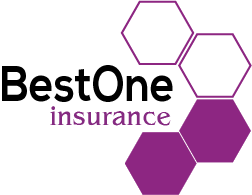Are There Specific Regulations for Trucking Insurance?
You may be wondering if there are specific regulations for trucking insurance. Well, the answer is yes. Regarding the trucking industry, particular regulations govern the insurance requirements for trucking companies. These regulations protect the trucking companies and the public from accidents or unforeseen circumstances.
But what exactly are these regulations? And why are they so important? In this discussion, we will explore the specific regulations for trucking insurance and why they are crucial for risk management in the industry.
Understanding Trucking Insurance Requirements
If you’re a truck driver, it’s important to understand the insurance requirements for your industry. Trucking insurance coverage protects you, your cargo, and your business from potential risks and liabilities. To meet the legal requirements and safeguard your livelihood, you should be aware of several factors affecting trucking insurance rates.
One main factor influencing trucking insurance rates is your driving record. Your rates are likely to be higher if you have a history of accidents or traffic violations. Insurance companies consider drivers with clean records to be less of a risk, resulting in lower premiums.
The type of cargo you transport also plays a significant role in determining your insurance rates. Hauling hazardous materials or high-value goods increases the risk of potential accidents or theft, leading to higher premiums. On the other hand, transporting less risky cargo, such as non-perishable goods, may result in lower insurance rates.
Furthermore, the distance and routes you travel can impact your insurance rates. Long-haul drivers who cover more miles and operate in regions with higher accident rates may face higher premiums compared to local or regional truckers.
Compliance With Trucking Insurance Regulations
To comply with trucking insurance regulations, you need to understand and adhere to the specific coverage requirements for your industry. Truck insurance coverage plays a crucial role in protecting your business from financial loss in the event of accidents, theft, or damage to your vehicles. Ensuring you have the appropriate coverage can mitigate the risks associated with operating a trucking business.
Regarding compliance, it is important to note that trucking insurance rates can vary based on several factors, such as your driving record, the type of cargo you transport, the distance you travel, and the size and age of your fleet. It is crucial to accurately report this information to your insurance provider to ensure you are adequately covered.
Additionally, staying compliant with trucking insurance regulations also involves regularly reviewing and updating your coverage as your business evolves. As your company grows, your insurance needs may change, and it is important to stay proactive in assessing and adjusting your coverage accordingly.
Importance of Trucking Insurance for Risk Management
Understanding and adhering to trucking insurance regulations is crucial for effectively managing the risks associated with operating a trucking business, and one of the key aspects of risk management is the importance of having proper trucking insurance coverage.
Here are some important points to consider regarding the cost and benefits of trucking insurance:
Cost of Trucking Insurance:
Trucking insurance can be expensive due to the high risks involved in the industry.
The cost of insurance can vary based on factors such as the type of trucking operation, the size of the fleet, and the drivers’ driving records.
However, the potential financial consequences of not having adequate insurance coverage can far outweigh the cost of premiums.
Benefits of Trucking Insurance:
Protection against liability: Trucking insurance provides coverage for bodily injury, property damage, and other liabilities that may arise from accidents involving your trucks.
Cargo coverage: Trucking insurance can also cover damage or loss of transported cargo.
Risk mitigation: Proper insurance coverage helps mitigate the financial risks associated with accidents, theft, and other unforeseen events.


